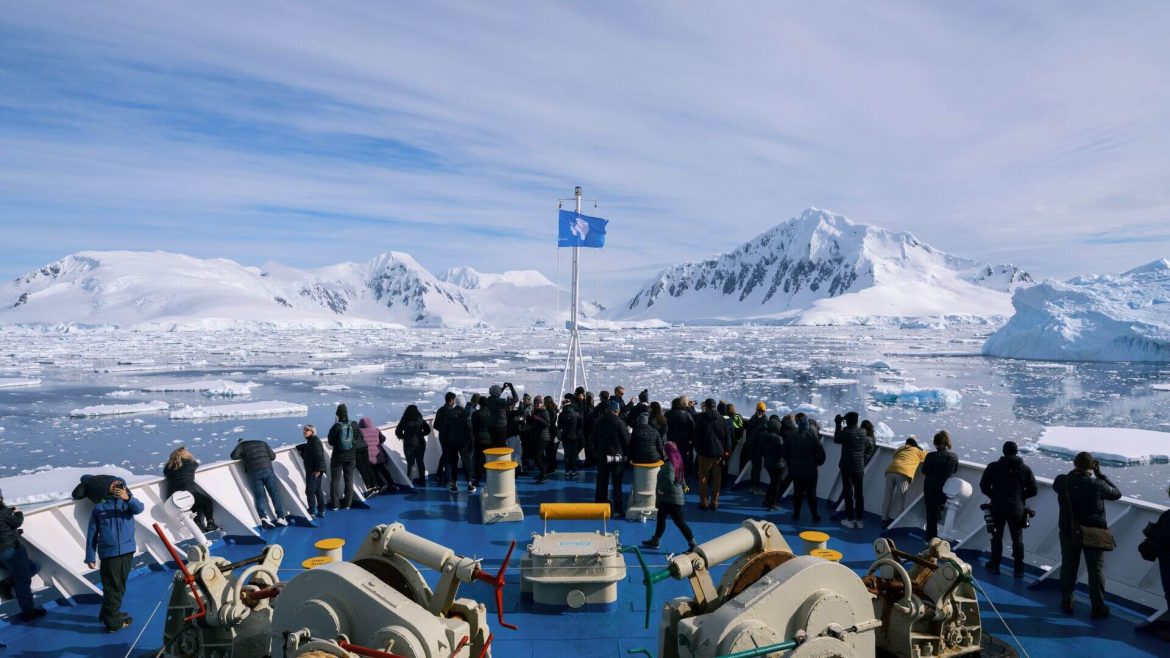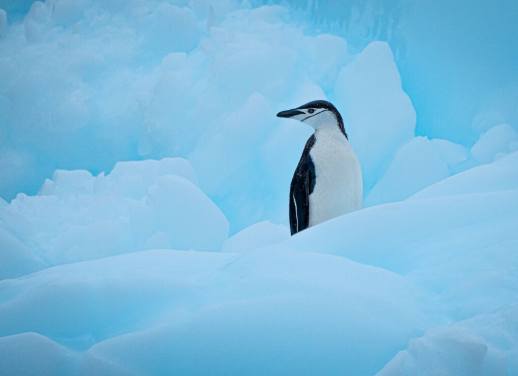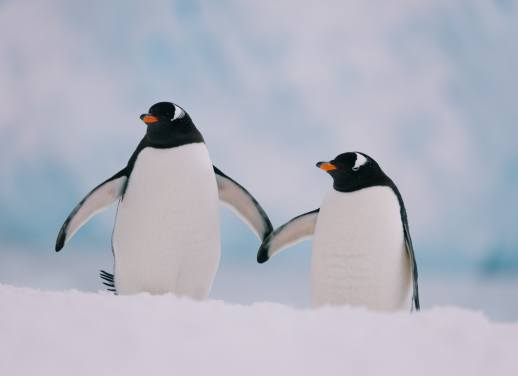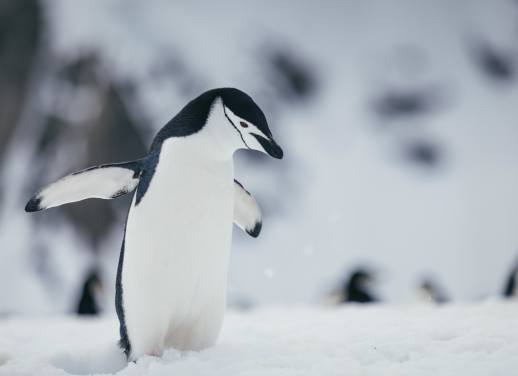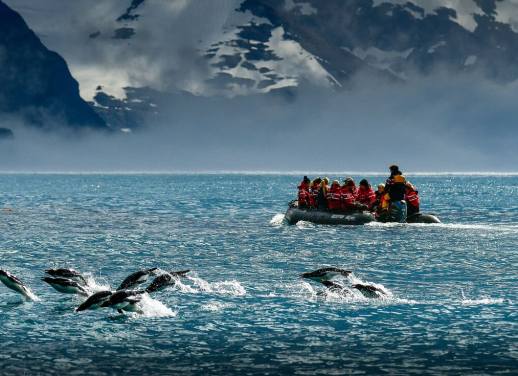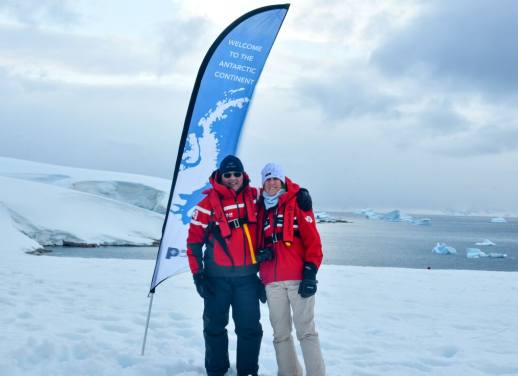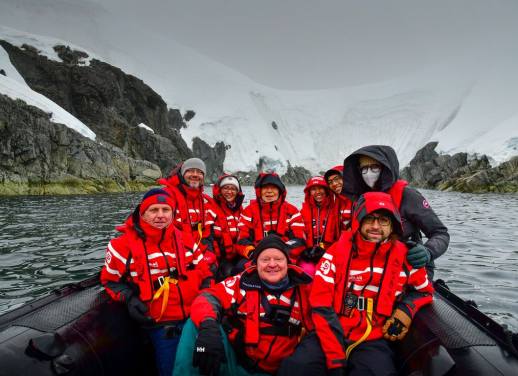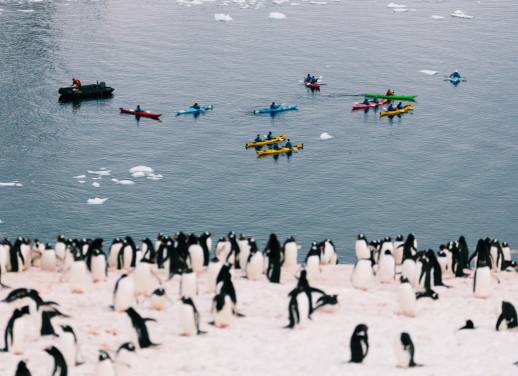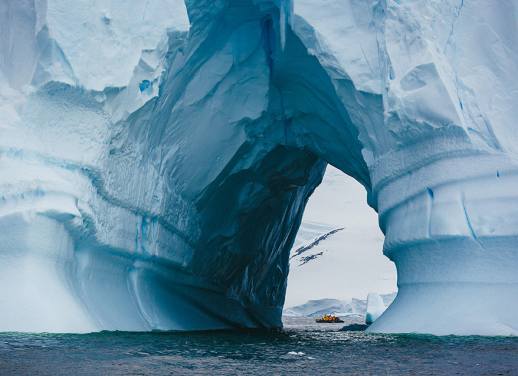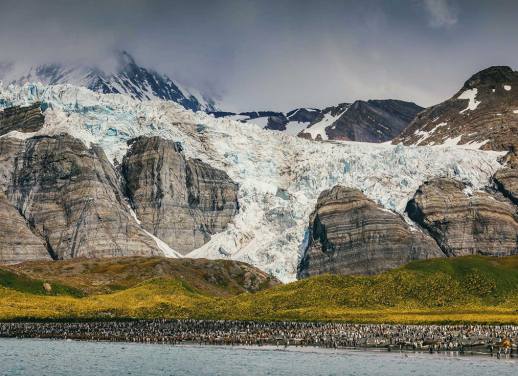Shrouded in ice, snow and an element of mystery, Antarctica is as unknown as they get
When travellers describe far-off places, they’re probably thinking of places like Antarctica. A destination requiring an epic journey, specialised equipment and trained professionals. Where the landscape feels almost as otherworldly as the surface of the moon and whose uniquely adapted wildlife greatly outnumbers any human inhabitants.
Setting our sights due south, let’s uncover the greatest myths about our icy southern continent.
Myth 1: The Drake Passage is really scary
Known as one of the roughest seas in the world, it’s no wonder the Drake Passage has churned up a bit of hype. Those who have faced off against this meeting place of ocean and wind have earned themselves a pat on the back. That is if you were met with the Drake Shake and not the Drake Lake – more on that later.
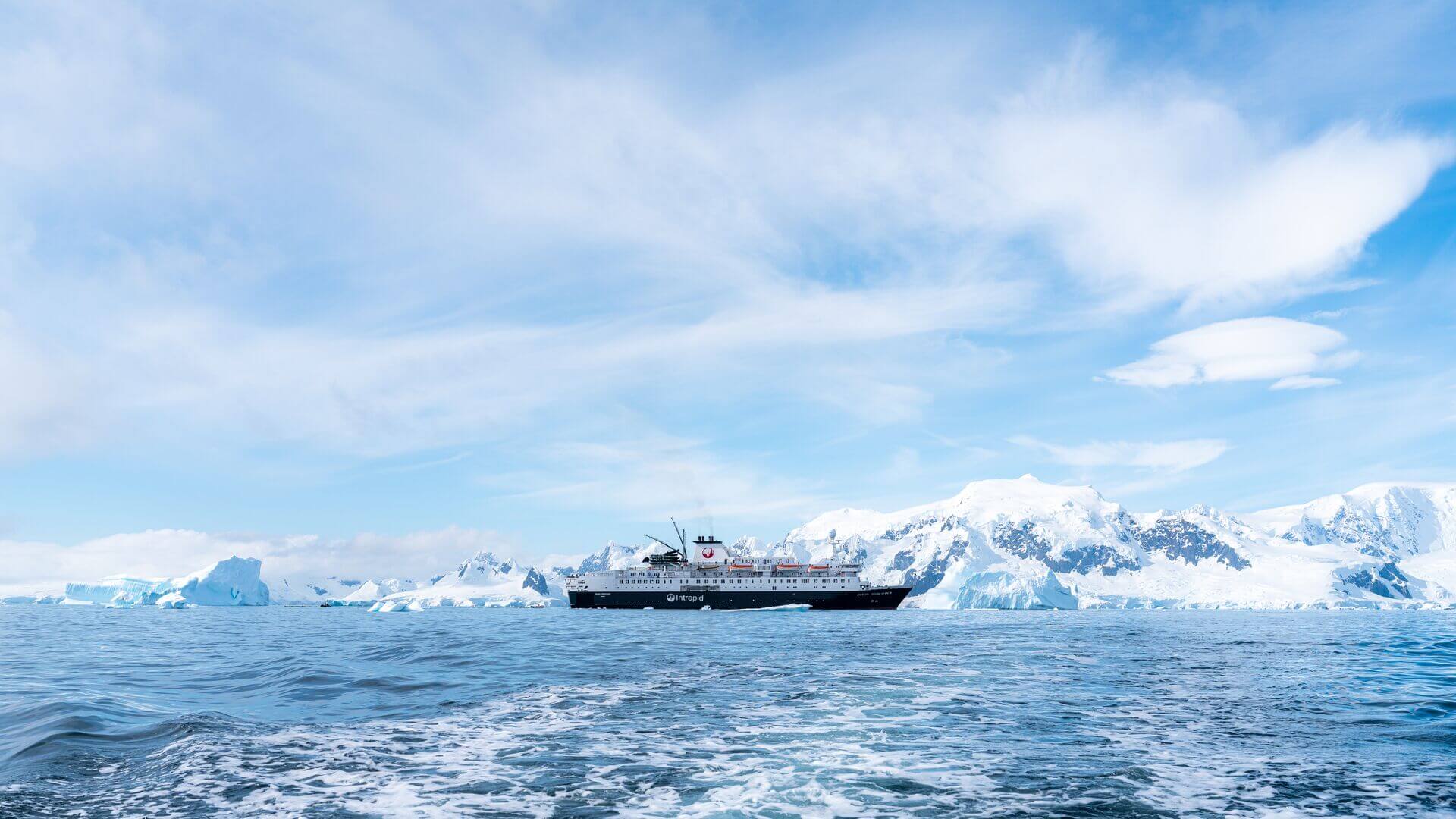
What’s so scary about the Drake Passage?
The Drake Passage is a stretch of water between South America and Antarctica, where the Atlantic and Pacific Oceans meet.
One notable characteristic of the Drake Passage is that it’s very unpredictable. You may get smooth lake-like conditions known as the ‘Drake Lake’ or the rough alternative: the ‘Drake Shake.’
If you do get the Drake Shake, know that while you’re earning your Passage stripes, you’ll be well-protected and well-taken care of.
Ships that charter this passage, including Intrepid’s ships, are typically ice-strengthened and purpose-built for the conditions. Similarly, your crew will be a hardy, well-trained bunch who navigate these waters in all conditions multiple times a year. There will also be an onboard doctor who is experienced in treating seasickness. Have a chat with them before the passage if you’re feeling a little worried.
And during the crossing days, there’s plenty to keep you distracted. Why not learn about your arrival destination with onboard Antarctica experts, or even get your heart rate going – or slowing – in the gym, spa or sauna?
How to hack the Drake Passage, read your guide to tackling the Drake Passage
Myth 2: I’ll be too seasick on the ship to enjoy a trip to Antarctica
Aside from the passage, the waters immediately surrounding Antarctica are incredibly smooth, so it’s unlikely you’ll have any problems when you get there.
Whether you’re someone who knows they get seasick or if you have never experienced rough waters, it’s recommended that everyone comes prepared to avoid white-knuckling the railing. Consult your doctor about possible medication and take cautionary measures like avoiding greasy food and alcohol. And as always, keep an eye on the horizon and try to get some fresh air.
Insider tip: although they can’t be guaranteed, try to request a central, middle cabin that may be less affected by the conditions.
But whether you choose to ride out the journey in your cabin or up with others in the lounge – know that it’s just a part of travelling to Antarctica – no pain, no gain, after all.
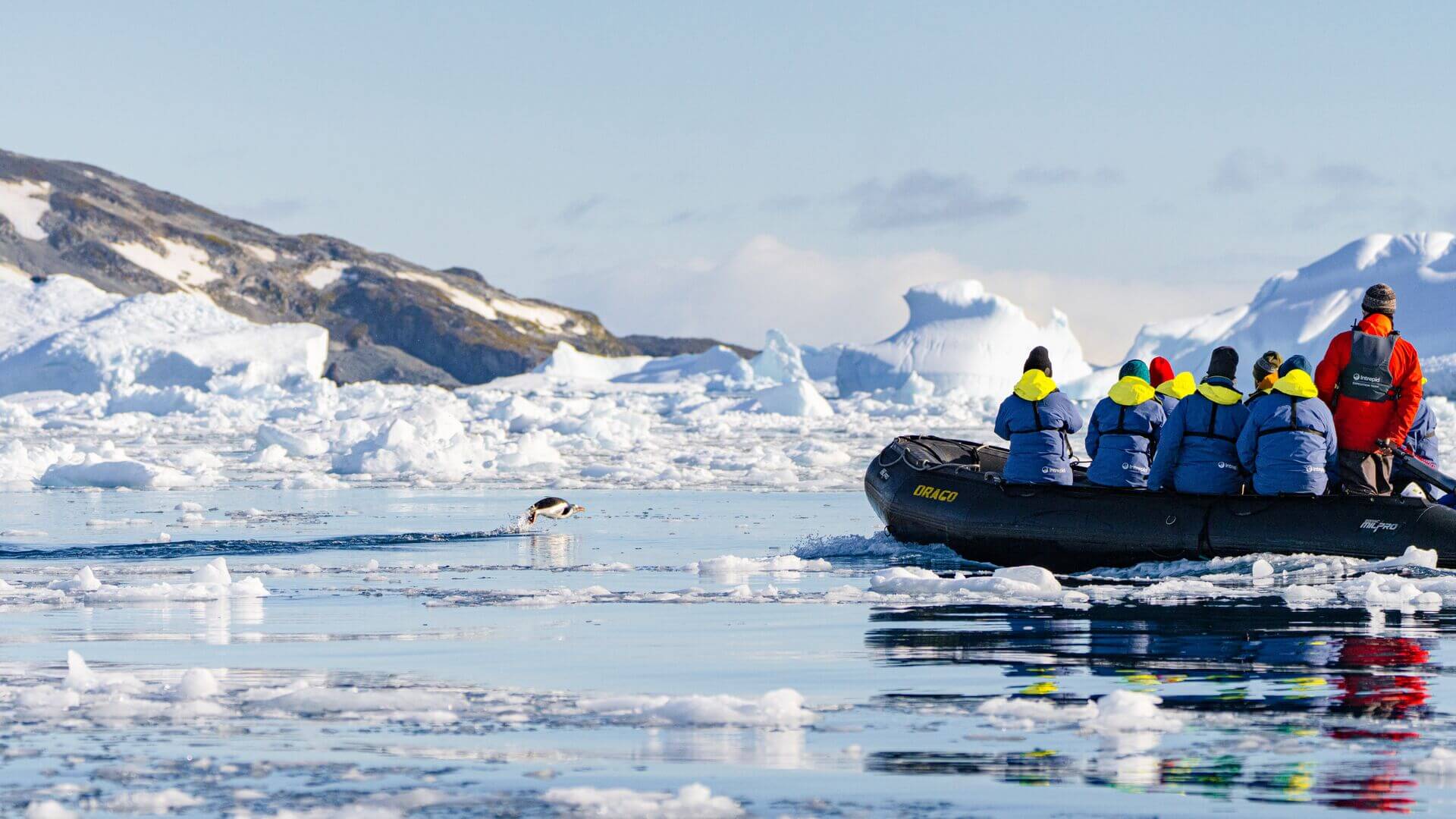
Myth 3: A trip to Antarctica will cost me my life’s savings.
I’ll keep it real: Antarctica is one of the most remote places in the world; it’s not going to be a quick or cheap journey. But honestly, you probably wouldn’t want this to be a ‘cheap’ trip as Antarctica is a complicated place; you want to know you’re in safe hands.
Ships are purpose-built, crews are highly trained and companies are well-equipped to support the journey. So, it will be more than your average holiday spend, but this is Antarctica – kind of goes with the territory.
Myth 4: I’ll get really bored on the travel days
Unlike ye olden days when boats took long, tedious journeys, today’s expedition cruises have seen 21st-century upgrades. Some ships have onboard gyms, spas, libraries, bars and even yoga classes, along with daily expert-led information sessions. And hey, if you’re lucky, you may even get some free entertainment playing hide and seek with passing whales.
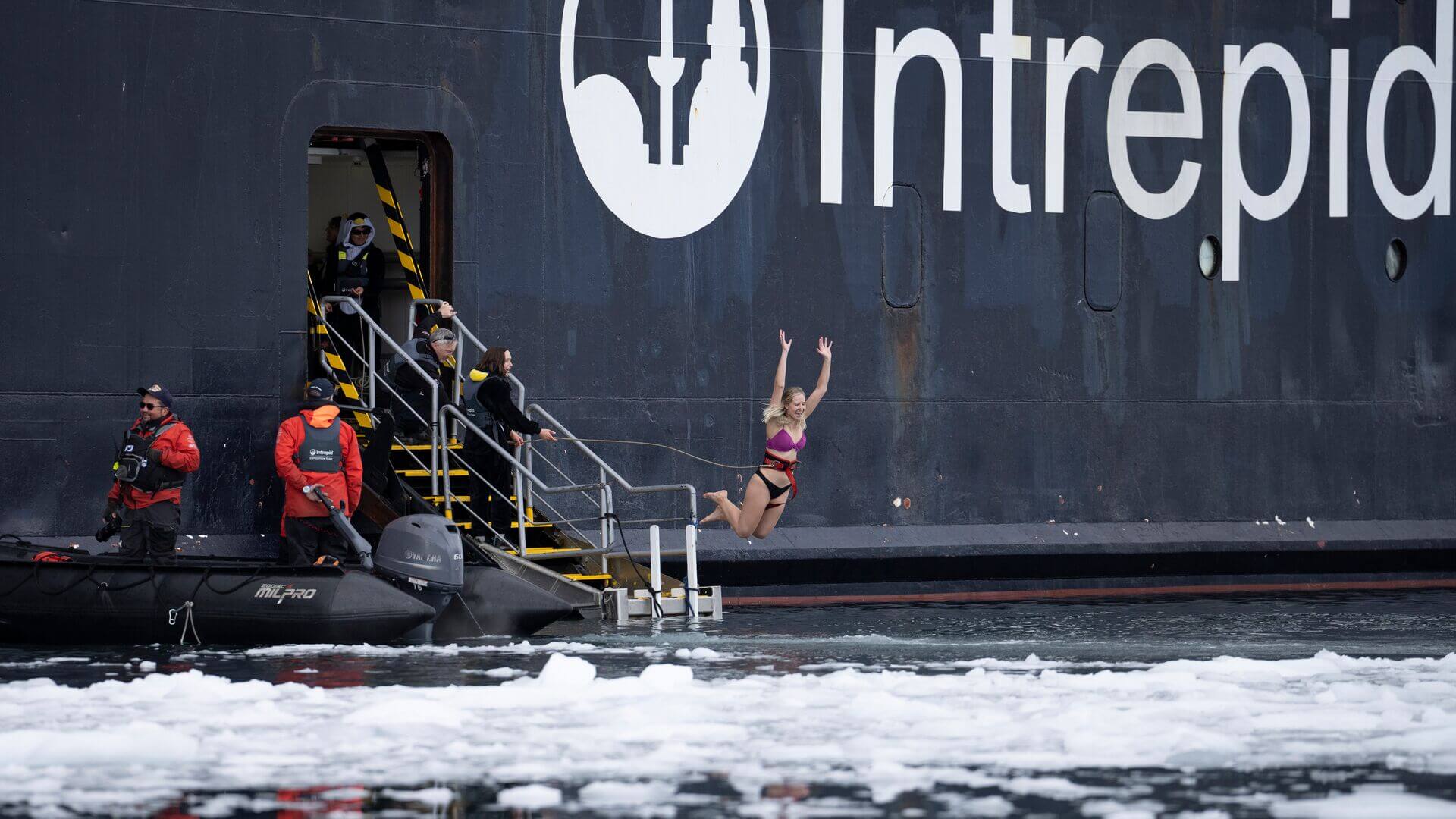
Myth 5: It’s really dangerous to visit Antarctica
Just like in any other cold climate, there can be moments of high winds and increased snowfall. Rest assured, your crew will always be monitoring the weather and are quick to make itinerary changes to lessen the effects of adverse weather.
However, importantly, you’ll need to come prepared with specialty gear – as this isn’t your average outdoor expedition. Intrepid ships will provide you with a waterproof jacket and rubber boots, but you will need to make sure you’re stocked up on the right clothing for any and all weather conditions – for your own safety, you may not be let off the ship if you’re not wearing the right garments.
You’ll need waterproof pants, quality beanies, gloves, base layers and mid-layers to wear under the jacket and pants. Ensure you’ve read the provided packing lists carefully.
Read Intrepid’s guide on what to pack for Antarctica
Is Antarctica’s wildlife dangerous?
There’s not much to worry about regarding dangerous wildlife encounters in Antarctica. Intrepid, alongside other operators, must abide by strict Antarctica codes about maintaining distance from wildlife; as long as you are too, you should be safe around any animals.
In summary, don’t pet the penguins.
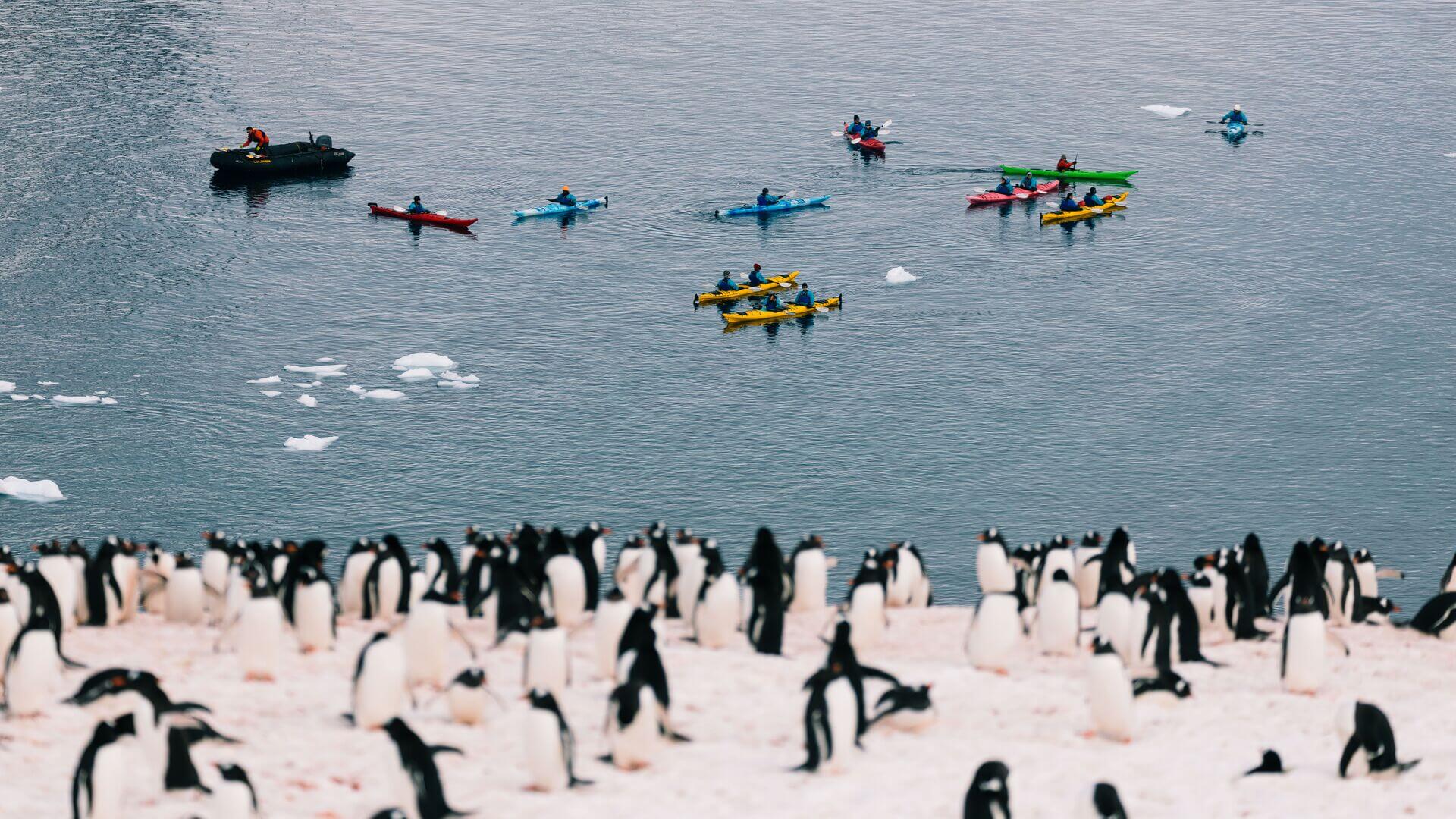
Myth 6: It’s just another cruise
Want to know the difference between a regular cruise and an Antarctica expedition cruise? For starters, instead of thousands of passengers, Intrepid ships carry less than 200 people.
Second, instead of bingo, casinos and other classic cruise fare, your days will be spent zipping around on Zodiacs, walking on land to get up close to the wildlife, learning how to become an Antarctica wildlife photographer, joining citizen science programs or listening to the expedition experts during the onboard lecture programs.
And if you want more excitement, Intrepid’s polar cruises also offer a ton of activities to get you even closer to the Antarctic action. Join in on optional paid activities like kayaking, stand-up paddle boarding, overnight ice camping and more.
So, less like your typical cruise and more like a summer camp in the coolest place on Earth. Cool, right?
Traveller stories: My trip to Antarctica was like a grown-up summer camp at sea
Myth 7: There’s not much to see, it’s just ice and water
So, this may not be a real myth, but in case you were wondering, ‘What’s the appeal?’ – here’s why people spend their hard-earned cash and tackle the Drake Passage to visit Antarctica.
Along with the landscape of jutting snow-topped mountains and near luminescent icebergs, Antarctica’s land, water and skies are home to 235 uniquely adapted species. Some of their most intriguing are:
- Adorable waddlers like the chinstrap, emperor and king penguins,
- Cute Antarctic fur seals, bizarre-looking Southern elephant seals and carnivorous leopard seals,
- Mammoth ocean dwellers such as blue, humpback and fin whales as well as the formidable Antarctic orcas.
Words may never be able to convey what it is to be in this elusive seventh continent, but there is this: Antarctica is a place that genuinely moves people to tears.
Now you’ve uncovered the myths, will you be setting sail for The Ice?
Check out Intrepid’s Antarctica trips.

